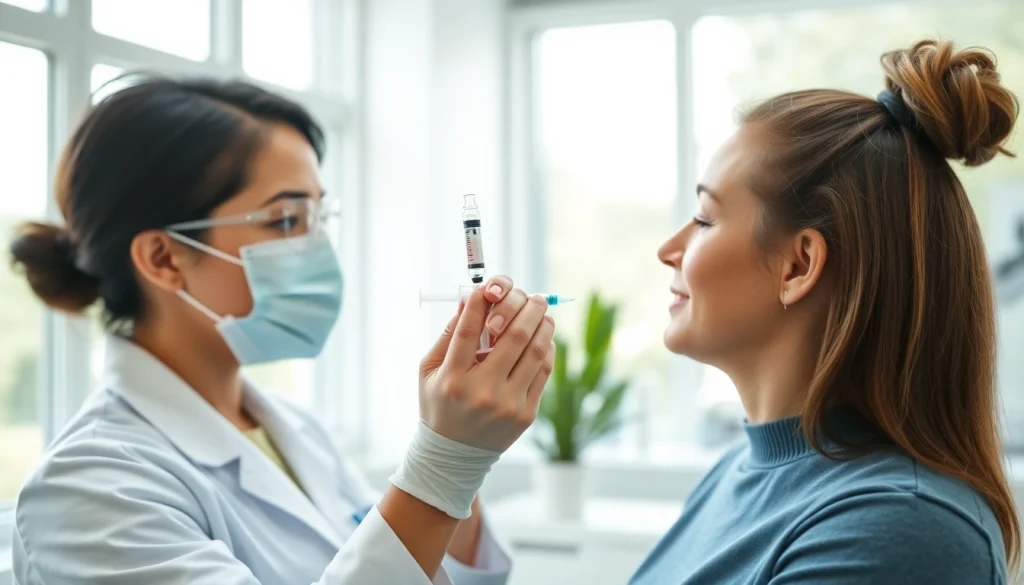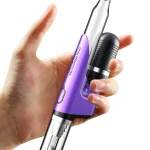Understanding Weight Loss Shots
What Are Weight Loss Shots?
Weight loss shots, also known as injectables, are medical treatments designed to assist individuals in reducing body weight. These shots typically contain compounds that may help accelerate metabolism, suppress appetite, or manage blood sugar levels. They have gained popularity in recent years as a potential tool for weight management, especially for those who struggle to lose weight through traditional diet and exercise methods.
In essence, weight loss shots are not a standalone solution but are best viewed as part of a multifaceted approach to health and fitness. Many people consider utilizing weight loss shots to complement other lifestyle changes, such as improving diet and enhancing physical activity.
How Weight Loss Shots Work
Weight loss shots primarily function by targeting physiological factors that influence body weight. They can act on the central nervous system to suppress hunger or enhance the body’s ability to burn calories more efficiently. Some shots may include ingredients such as hormones or amino acids, which play significant roles in fat metabolism and regulation of appetite.
For instance, certain injections may contain a form of glucagon-like peptide-1 (GLP-1), a hormone that signals the brain to reduce hunger and increase feelings of fullness. Others may involve lipotropic agents that assist in fat breakdown within the liver.
Common Types of Weight Loss Shots
Various types of weight loss shots are available on the market, each with distinct mechanisms and ingredients. Some of the most common include:
- Semaglutide: This GLP-1 agonist has been shown to aid in significant weight loss by decreasing appetite and enhancing calorie use.
- L-carnitine: Often used for its fat-burning properties, this shot is believed to help transport fatty acids into mitochondria, where they are burned for energy.
- B12 Shots: While primarily used to boost energy levels and enhance overall metabolism, B12 injections can aid in improving weight loss results when combined with a proper diet.
Benefits of Weight Loss Shots
Physical Health Advantages
Weight loss shots can provide several physical health benefits. First and foremost, they can lead to significant weight reduction, which is associated with a decrease in obesity-related conditions such as type 2 diabetes, hypertension, and heart disease. By assisting in weight loss, these injections may help improve blood sugar control and lower cholesterol levels, further enhancing cardiovascular health.
Moreover, many individuals report increased energy levels and improved physical stamina following a period of sustained weight loss. This can enable them to engage more actively in exercise and other physical activities, creating a positive feedback loop that promotes further weight reduction.
Mental Health and Motivation
Beyond their physical benefits, weight loss shots can also positively impact mental health. Successful weight loss may lead to increased self-esteem and improved body image, which can combat depressive symptoms or anxiety related to body image and weight. Additionally, the prospect of fast-tracked results can be a powerful motivational tool for individuals who may feel discouraged by slower traditional weight loss methods.
Furthermore, the changes in energy levels and overall fitness can enhance one’s mood and increase engagement in social or recreational activities, leading to a further positive cycle of mental and emotional well-being.
Convenience and Lifestyle Fit
Weight loss shots offer a convenient method of weight management that can seamlessly fit into various lifestyles. For busy individuals and those with limited time for meal planning and preparation, weight loss shots can provide a straightforward solution that requires minimal daily commitment compared to other weight loss interventions.
Moreover, since these injections are typically administered by healthcare professionals, individuals do not have to invest time in researching and preparing complex meal plans or engaging in extensive workout regimens without guidance.
Choosing the Right Weight Loss Shot
Consulting with a Healthcare Professional
Before starting any weight loss shot regimen, it is crucial to consult with a healthcare professional. They can provide comprehensive assessments of your health status, medical history, and weight loss goals, ensuring that the selected approach is safe and effective for your unique circumstances. This consultation includes discussing existing health conditions that may influence treatment choices, as well as any other medications being taken.
Assessing Personal Health Goals
Taking the time to assess personal health goals is fundamental in choosing the right weight loss shot. Individual goals can vary dramatically, ranging from significant weight loss to minor adjustments for improved fitness and health. By understanding personal objectives, individuals can prioritize what weight loss shots might align best with achieving these goals, whether they seek a rapid reduction or a more gradual approach that fits their lifestyle.
Understanding Dosage and Frequency
Another vital aspect of selecting appropriate weight loss shots is understanding the recommended dosage and frequency of the injections. Each type of weight loss shot may come with its own set of guidelines and protocols, depending on the specific compounds used and the desired outcomes. Proper adherence to these instructions can facilitate the effectiveness of the treatment while minimizing side effects.
Implementing Weight Loss Shots in Your Routine
Combining with Dietary Changes
To maximize the effectiveness of weight loss shots, they should be complemented with dietary changes. A balanced diet rich in whole foods, vegetables, fruits, and lean proteins can help to solidify the weight loss achieved through shots. It is advisable to work alongside a nutritionist or dietician to create a tailored meal plan that considers personal preferences, nutritional requirements, and potential food allergies.
Incorporating Exercise Regimens
Alongside dietary changes, incorporating a regular exercise regimen is essential for long-term weight management success. Physical activity not only supports weight loss but also contributes to overall health by improving cardiovascular fitness, muscle strength, and flexibility. Various forms of exercise, including weight training, cardiovascular workouts, and flexibility routines, can be incorporated to create a versatile approach that keeps individuals engaged.
Monitoring Progress Effectively
Monitoring progress effectively is a crucial aspect of any weight loss journey, particularly when utilizing weight loss shots. Keeping track of metrics such as weight, waist circumference, and body fat percentage can provide insight into the effectiveness of the regimen. Employing apps, journals, or regular consultations with healthcare providers can foster accountability and motivation, further enhancing the likelihood of achieving specific weight loss goals.
Potential Side Effects and Considerations
Understanding Risks Associated with Weight Loss Shots
While weight loss shots can offer numerous advantages, they may also pose risks. Potential side effects can range from mild reactions at the injection site to more serious health risks, such as gastrointestinal issues or hormonal imbalances, depending on the substance injected. Understanding these risks is crucial for making informed decisions about weight loss treatments and ensuring that any shot selected does not adversely affect overall health.
Consulting Healthcare for Side Effects
If any unexpected side effects arise during the course of using weight loss shots, it is essential to communicate with a healthcare professional immediately. They can assess symptoms, determine their relevance to the treatment administered, and suggest appropriate adjustments or alternative treatments as necessary. Establishing open channels of communication with healthcare providers can safeguard against potential complications.
When to Stop Weight Loss Shots
Recognizing when to stop using weight loss shots is vital for overall well-being. If an individual experiences significant adverse reactions or finds that progress has plateaued despite consistent efforts, it may be time to re-evaluate their approach. Regular check-ins with healthcare providers can aid in deciding whether to discontinue treatment or adjust methods for better results.


